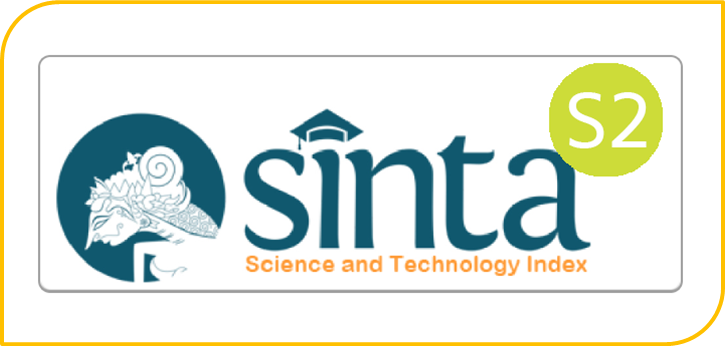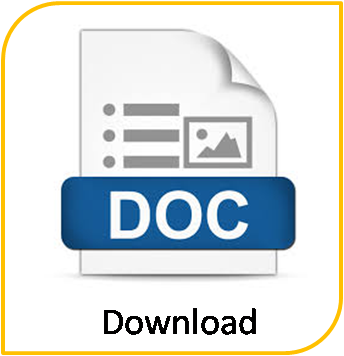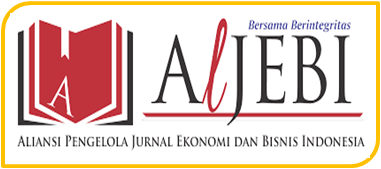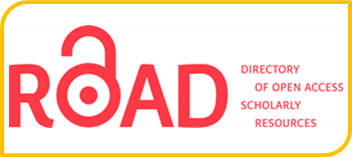AWARENESS, PERCEPTION, AND WILLINGNESS TO CONTRIBUTE TO MICRO WAQF BANKS AMONG MUSLIMS IN INDONESIA
Abstract
The purpose of this study is to assess the level of awareness, perception, and willingness that Indonesian Muslims towards waqf and Micro Waqf Banks (MWB). By distributing questionnaires to 104 Muslims, the results show that many Muslims still have a relatively low level of awareness about waqf and MWB. This may be due to the lack of socialization, especially regarding cash waqf and the establishment of MWB. Further findings indicate that the majority of Muslims in Indonesia agree on the establishment of MWB and also agree that MWB can be a solution to suppress the loan shark business so as to improve the welfare of the community, especially the lower middle class. Finally, Indonesian Muslims are willing to contribute to MWB especially if they know how to donate and how MWB operates. A higher level of willingness to contribute to MWB provides a great opportunity for MWB to develop its operations in the future. This research contributes to assisting MWB and Indonesian Waqf Board in developing appropriate socialization strategies to build and develop the potential of waqf in Indonesia.
Keywords
Full Text:
PDFReferences
Agutian R.S, E., Afuw, H., & Nordiana M.A.S, Y. (2018). Optimalisasi Wakaf Market Melalui Pengembangan Go Wakaf (Studi Pada Minimarket “Al-Khaibar” Malang). El Dinar.
Al Arif, M. N. Ri. (2012). Wakaf Uang dan Pengaruhnya Terhadap Program Pengentasan Kemiskinan. Jurnal Indo-Islamika, 2(1), 17–29.
Asuhaimi, F. A., Shafii, Z., Ahmad, N., & Alias, M. H. (2017). A Study on the Willingness of State Islamic Religious Councils to Support Waqf Development in Higher Education. Journal of Muamalat and Islamic Finance Research, 39–53.
Aziz, M. (2017). Peran Badan Wakaf Indonesia (BWI) Dalam Mengembangkan Prospek Wakaf Uang Di Indonesia. JES (Jurnal Ekonomi Syariah).
Aziz, M. R. A., Yusof, M. A., & Johari, F. (2013). The inclination of student andpublic towards the establishment of Islamic waqf bank. World Applied Sciences Journal.
Djalaludin, A., & Maisyaroh, M. (2013). Manajemen Dana Wakaf Tunai Untuk Pengembangan Lembaga Pendidikan Islam ( Studi pada BMH Cabang Malang ). El Dinar, 1(2), 154–165.
Fanani, M. (2011). Pengelolaan Wakaf Tunai. Walisongo: Jurnal Penelitian Sosial Keagamaan.
Furqon, A. (2012). Wakaf Sebagai Solusi Permasalahan-Permasalahan Dunia Pendidikan di Indonesia. Jurnal Hukum Islam (JHI), 10(1), 35–53.
Hasanah, N. (2018). Kontekstualitas Ayat-Ayat Hukum Wakaf Di Indonesia. Asy-Syari’ah, 20(2), 133–144.
Havita, G., Sayekti, K. A., & Wafiroh, S. R. (2014). Model Bank Wakaf Di Indonesia Dalam Potensinya Untuk Mengembangkan Wakaf Uang Dan Mengatasi Kemiskinan. Program Kreativitas Mahasiswa-Gagasan Tertulis.
Maulana, A. (2020). Sharia Governance Sebagai Solusi Mengatasi Pengaruh Negatif Karakteristik Sosial-Politik Terhadap Pengungkapan I-Csr Bank Syariah. Nisbah: Jurnal Perbankan Syariah, 6(1), 1.
Medias, F. (2017). Bank Wakaf: Solusi Pemberdayaan Sosial Ekonomi Indonesia. Indonesian Journal of Islamic Literature and Muslim Society, 2(1), 61–84.
Mohammad, M. T. S. H. (2011). Towards an Islamic Social (Waqf) Bank. International Journal of Trade, Economics and Finance.
OJK, O. (2020). Mewujudkan Kesejahteraan Masyarakat Dengan Bank Wakaf Mikro.
Republik Indonesia. Undang-Undang Republik Indonesia Nomor 41 Tahun 2004 tentang Wakaf. , (2004).
Sancoyowati, F. (2018). Wakaf Sebagai Instrumen Kebijakan Pemerintah untuk Mengatasi Eksternalitas Barang Publik ( Perspektif Maqashid Syari’ah ). El Dinar, 7–12.
Shaikh, S. A., Ismail, A. G., & Mohd Shafiai, M. H. (2017). Application of waqf for social and development finance. ISRA International Journal of Islamic Finance.
DOI: https://doi.org/10.18860/ed.v8i2.8824
Refbacks
Editorial Office:
Megawati Soekarnoputri Building
Faculty of Economics
E-mail: eldinar@uin-malang.ac.id
Universitas Islam Negeri Maulana Malik Ibrahim Malang
E-ISSN 2622-0083

El Dinar under a CC BY SA 4.0 International License.
Member of:
Indexed By:
















